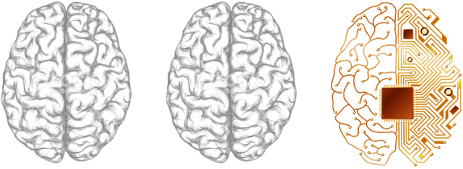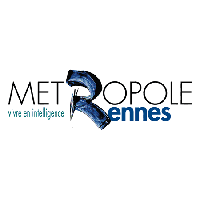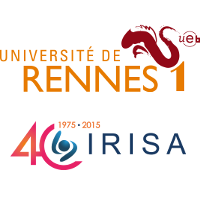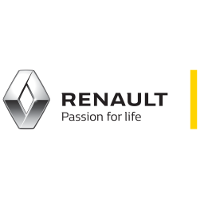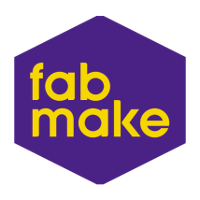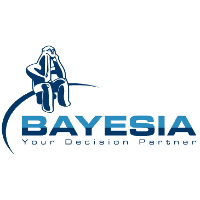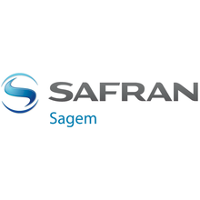Programme
La conférence APIA se déroulera les 2 et 3 juillet.
**********************************************************************
Conférencier invité : Rodney Brooks Panasonic Professor of Robotics (emeritus)
MIT Computer Science and Artificial Intelligence Lab
http://people.csail.mit.edu/brooks.
Now full time at RethinkRobotics http://rethinkrobotics.com @rodneyabrooks
**********************************************************************
JEUDI 2 JUILLET
8:30 Accueil – Inscriptions PFIA
9:00 Conférence invitée plénière PFIA/IC
Jean-Luc Vuillaume (Altran Research, France)
Titre : Pérennisation de la connaissance via un Electronic Performance Support System (EPSS)
Abstract –La société MBDA (Groupe EADS) fait partie du secteur de l’armement et emploie 10.000 personnes. Il y a 6 ans les questions de la pérennisation et de la capitalisation de la connaissance liée aux applications informatique ont été posées aux Responsable des Système d’Informatique et de la formation. Le retour d’expérience que je vous propose de partager correspond à la mise en place d’une base de connaissances pendant les 6 années qui ont suivi.
Je commencerai par la présentation du contexte et l'explicitation des questions posées après 10 ans de déploiement informatique par les salariés après une étude de satisfaction. J’aborderai la réflexion que nous avons eue sur la notion de connaissance, d’apprentissage et de compétence. Celle-ci nous a amené à la mise en place d’un EPSS (Electronic Performance Support System) que je définirai ainsi que l’organisation informatique, organisationnelle et de production que nous avons mise en place. Je ferai ensuite un bilan sur la bibliothèque de connaissance applicative métier créée pour finir par les perspectives envisageables dans les prochaines années.
10:00 Pause
10:30 Session commune de démonstrations JFPDA, APIA et IC
12:00 Déjeuner
13:30 Session 1 (présidents Domitile Lourdeaux et Sylvain Mahé)
- 13:30 : Deux applications des logiques non-monotones : Décision à bord d’un sous-marin, Représentation et découverte pour la cellule cancéreuse. Andrei Doncescu and Pierre Siegel.
- 14:00 : Strategic Decision Making In Yacht Match Racing: Stochastic Game Approach. Lamia Belouaer, Matthieu Boussard and Patrick Bot.
- 14:30 : Modélisation, Résolution et Expérimentation de méthodes de Planification et d’Ordonnancement Collaboratif pour le Commandement de Brigade. Christophe Guettier
- 14:45 : Densité de trafic émergente pour des véhicules intelligents communiquants guidés par heuristique. Philippe Morignot, Oyunchimeg Shagdar and Fawzi Nashashibi.
- 15:00 : Simulation et Evaluation Multi-Agents dans les Jeux Sérieux collaboratifs : le projet SIMFOR. Erwan Tranvouez, M'Hammed Ali Oulhaci, Sébastien Fournier and Bernard Espinasse.
- 15:15 : Evolution dans l'industrie du métier de l'ingénieur cogniticien ou l'ingénieur de la connaissance entre 1985 et 2015. Alain Berger.
15 :30 Pause
16 :00 Session 2
- 16:00 : Dix ans : L’âge de la maturité pour la plate-forme WebLab. Stephan Brunessaux and Patrick Giroux.
- 16:30 : Towards efficient data integration and knowledge management in the Agronomic domain. Aravind Venkatesan, Nordine El Hassouni, Florian Philippe, Cyril Pommier, Hadi Quesneville, Manuel Ruiz and Pierre Larmande.
- 17:00 : Une approche Bayésienne pour l'apprentissage de règles séquentielles de classification. Elias Egho, Dominique Gay, Marc Boullé, Nicolas Voisine and Fabrice Clérot
17 :30 Fin
VENDREDI 3 JUILLET
8:30 Accueil – Inscriptions PFIA
9:00 Conférence invitée plénière PFIA/JFPDA
Hector Geffner (ICREA & Universitat Pompeu Fabra, Barcelona, SPAIN)
Titre : Progress and Challenges in Planning
Abstract – Planning in AI represents the model-based approach to control where actions are selected to achieve goals given a predictive model of the actions and sensors. The main challenges in planning are computational, as all the models, whether accommodating feedback and uncertainty or not, are intractable in the general case. In this talk, I'll review some the models considered in planning, and some recent ideas that have turned out to be useful computationally. I'll focus mainly on three types of methods from our own recent work: 1) width-based search, where we show results on a number of video games from the ALE and GVG-AI environments, 2) translations for planning with partial observability using classical planners, and 3) multiagent planning with nested beliefs. In all cases, we seek methods that can be both general and effective. This is joint work with students and collaborators, including Blai Bonet, Nir Lipovetzky, Miquel Ramirez, Filippos Kominis, and Tomas Geffner.
10:30 Pause
10:30 Session 3 (président Yves Demazeau)
- 10:30 : Simulations multi-agents de l’activité humaine : application dans le contexte énergétique résidentiel français. Thomas Huraux, Nicolas Sabouret, Yvon Haradji and François Sempé.
- 11:00 : Conception de « Scènes de Vie » pour le Peuplement d’Environnements Virtuels. Caroline Chopinaud and Etienne de Sevin .
- 11:30 : Modélisation du comportement tactique de la population australienne dans un feu de brousse. Carole Adam, Elise Beck and Julie Dugdale.
12:00 Déjeuner
14:00 Conférence invitée plénière PFIA/APIA
Rodney Brooks (MIT Computer Science and Artificial Intelligence Lab)
Titre : Adding a Little Intelligence to Factory Robots
Abstract –Traditional industrial robots show up without any software besides a compiler or interpreter for a robot motion language, and no external sensors or safety systems. Systems integrators and consultants are used to define how the robot will operate in a production line, sensors and interfaces to other machines are procured, and a specific new program is written for the application. In this talk I will describe a new way of thinking about industrial robots, where they came with sensors, machine interfaces, a User Interface, and in intelligence software stack that together provide most of the control that is needed to get the robot to do useful work. Factory workers then show the robot what it is to do, in task coordinates rather than robot coordinates, and the robot is able to carry out the task and notice anomalous situations. The robots are not very intelligent by the standards of AI researchers, but they are robust and reliable, and just a little intelligence makes them so much more powerful than traditional industrial robots.
15:00 Pause
15:30 Session 4
- 15:30 : Un système de raisonnement à partir de cas pour prévoir l'allocation de parcelles agricoles. Florence Le Ber, Laura Martin, Alain Mille and Marc Benoît
- 16:00 : Taaable : un système de raisonnement à partir de cas qui adapte des recettes de cuisine. Emmanuelle Gaillard, Jean Lieber and Emmanuel Nauer.
- 16:30 : Problèmes d’optimisation dans les jeux avec GHOST. Florian Richoux.
- 16:45 : Discussion
17:00 Fin
